By Malick Nyang
Nine years ago, the Government of the Republic of The Gambia passed the Women’s (Amendment) Act, 2015, which prohibits female circumcision. Sections 32A and 32B criminalise the harmful traditional practice and set out punishments for performing, procuring, and aiding and abetting the practice of Female Genital Mutilation/Cutting (FGM/C).
However, the country’s National Assembly advanced a bill on March 18 that would repeal the 2015 law criminalizing all acts of FGM/C, a move that could make The Gambia the first country in the world to reverse legal protections against the practice.
The Draft Women’s (Amendment) Bill, 2024 sponsored by the National Assembly member for Foni Kansala, Almameh Gibba and endorsed by the Supreme Islamic Council, seeks to make the practice of FGM/C a “matter of choice” for those who want to practice it.
Over the past months, there has been intense debate between the pro-FGM/C (who argue that the harmful traditional practice is a “religious obligation” – which has been contested) and the anti-FGM/C (who said a reversal of the ban would significantly affect the protection and promotion of the rights of women and girls and exposes many to danger). The bill is now referred to a parliamentary committee to engage in wider consultations before it is brought back to a full house of parliament.
Key facts about FGM/C in The Gambia
According to the 2019/2020 Demographic and Health Survey (DHS) in which about 12, 000 women aged 15-49; more than 4, 600 men aged 15-59; and more than 6, 500 households participated in, women who believe FGM/C should continue decreased from 65% in 2013 to 46% in 2020. This decrease was largest among women who have undergone FGM/C. 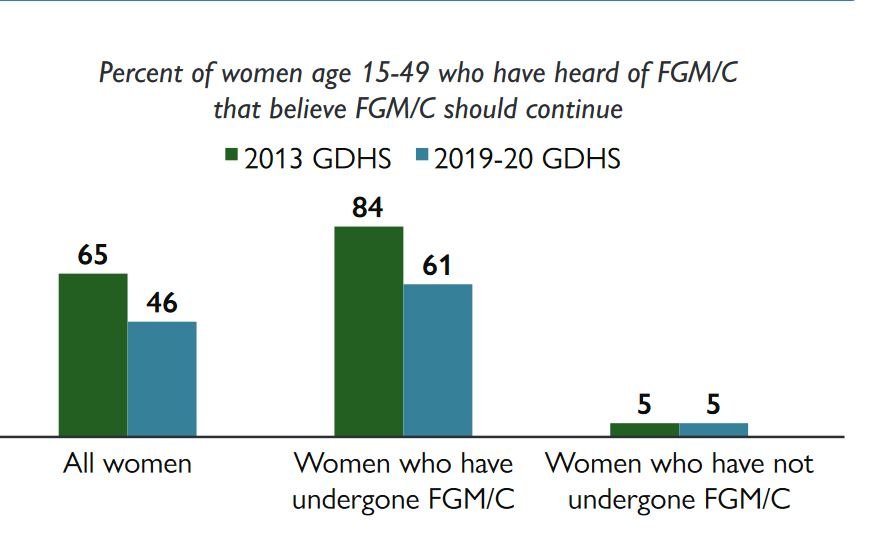
Eighty-nine (89%) of women and 65% of men know that FGM/C is illegal. Knowledge that FGM/C is illegal increases with age. 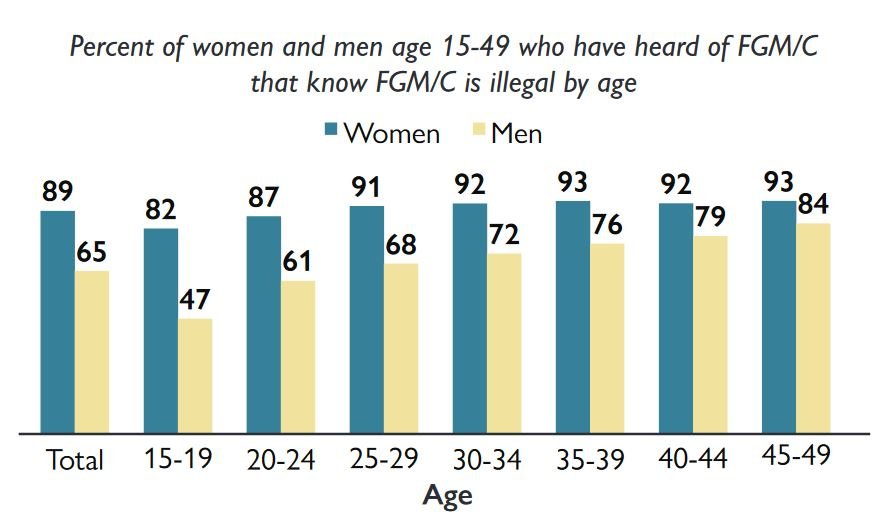 Knowledge that FGM/C is illegal is highest among women in Brikama and among men in Kanifing. Knowledge that FGM/C is illegal is lowest among women in Kuntaur and
Knowledge that FGM/C is illegal is highest among women in Brikama and among men in Kanifing. Knowledge that FGM/C is illegal is lowest among women in Kuntaur and
among men in Banjul. 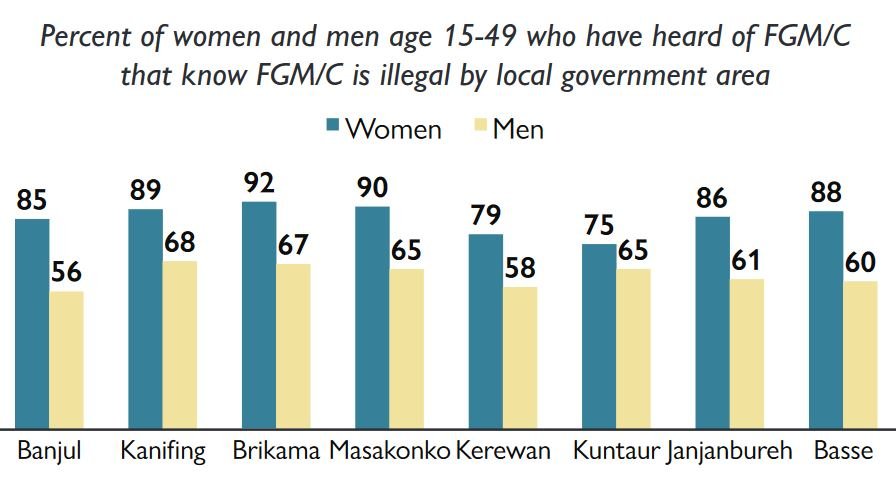 However, despite increased awareness and changing attitudes, FGM/C continues in The Gambia. According to the 2019-20 Gambia Demographic and Health Survey (GDHS),
However, despite increased awareness and changing attitudes, FGM/C continues in The Gambia. According to the 2019-20 Gambia Demographic and Health Survey (GDHS),
nearly 5 in 10 girls age 0-14 in The Gambia have undergone FGM/C. Yet, these data don’t tell the full story, as girls age 0-14 who had not undergone FGM/C at the time of the survey are still at risk of being cut in the future.*  FGM/C ranges from 25% of girls in Banjul to 79% of girls in Basse.
FGM/C ranges from 25% of girls in Banjul to 79% of girls in Basse.

Among girls age 0-14, percent distribution by age at which cutting occurred.
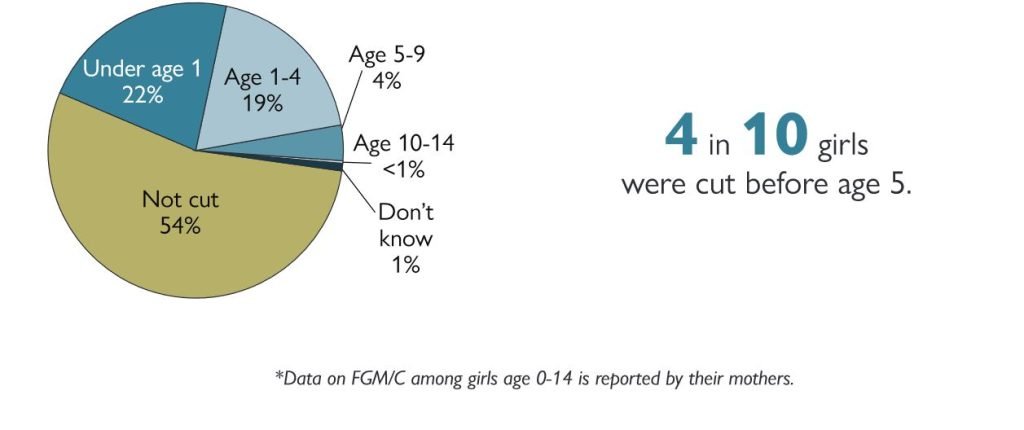
More than 7 in 10 women age 15-49 in The Gambia have undergone FGM/C. FGM/C is slightly more common in urban areas than in rural areas, and there is no clear relationship between FGM/C and women’s education. 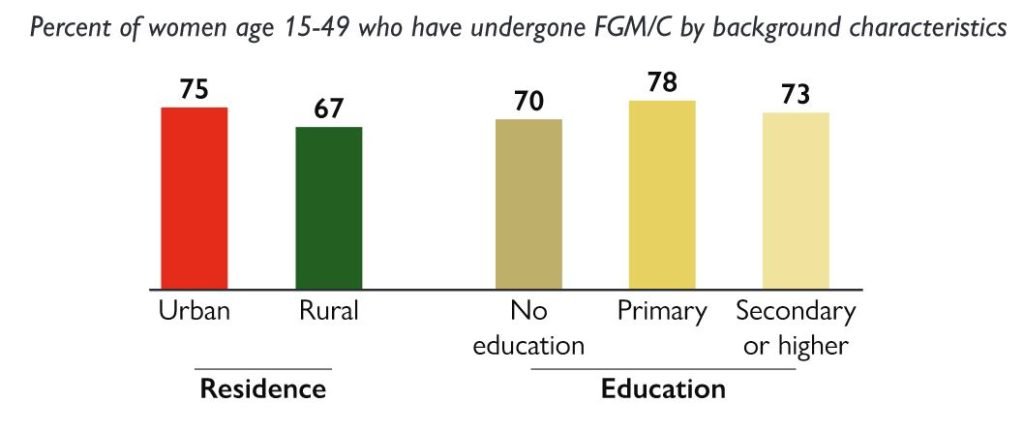 FGM/C ranges from 48% of women in Banjul (the capital) to 97% of women in Basse (country’s second capital).
FGM/C ranges from 48% of women in Banjul (the capital) to 97% of women in Basse (country’s second capital).

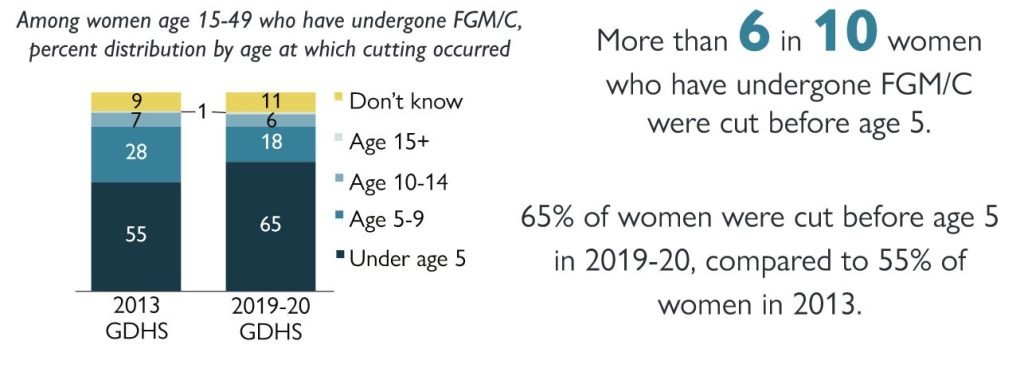
Only Mali has a higher prevalence of FGM/C among girls than The Gambia. Below are the percentage of girls age 0-14 who have undergone FGM/C in selected countries with a recent DHS. 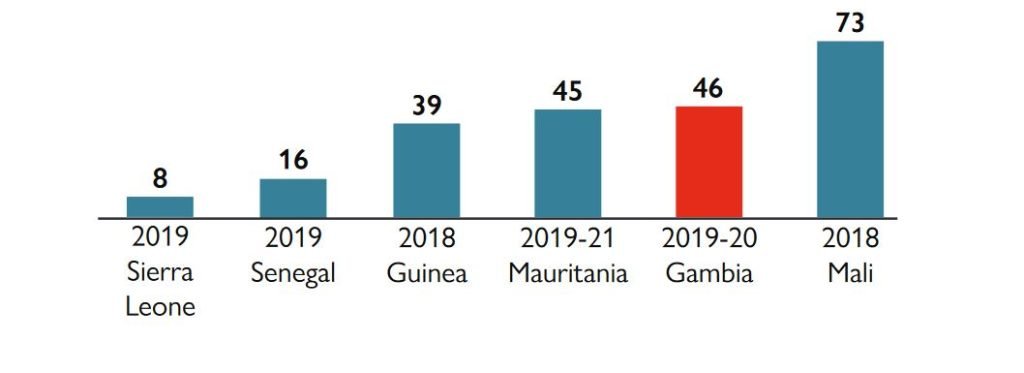 FGM/C among women in The Gambia is nearly three times higher than in neighboring Senegal. The percentage of women age 15-49 who have undergone FGM/C in selected countries with a recent DHS as seen below:
FGM/C among women in The Gambia is nearly three times higher than in neighboring Senegal. The percentage of women age 15-49 who have undergone FGM/C in selected countries with a recent DHS as seen below:
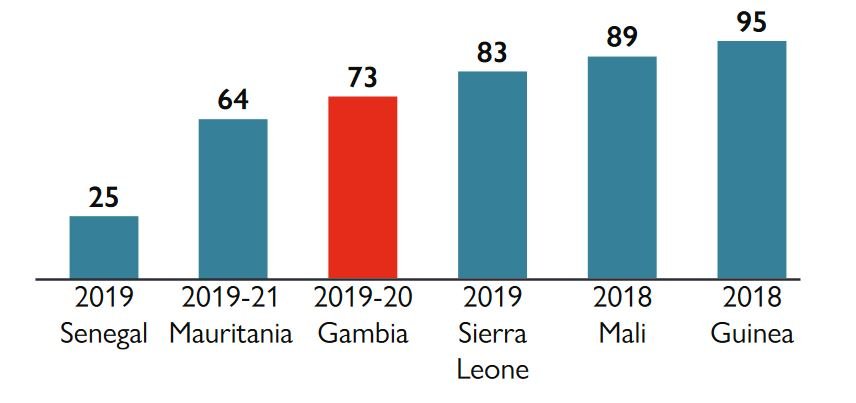
The 2019-20 Gambia Demographic and Health Survey (2019-20 GDHS) was implemented by the Gambia Bureau of Statistics (GBoS).
Source: https://dhsprogram.com/pubs/pdf/DM180/DM180.pdf Full report can be accessed here: https://dhsprogram.com/publications/publication-FR369-DHS-Final-Reports.cfm


